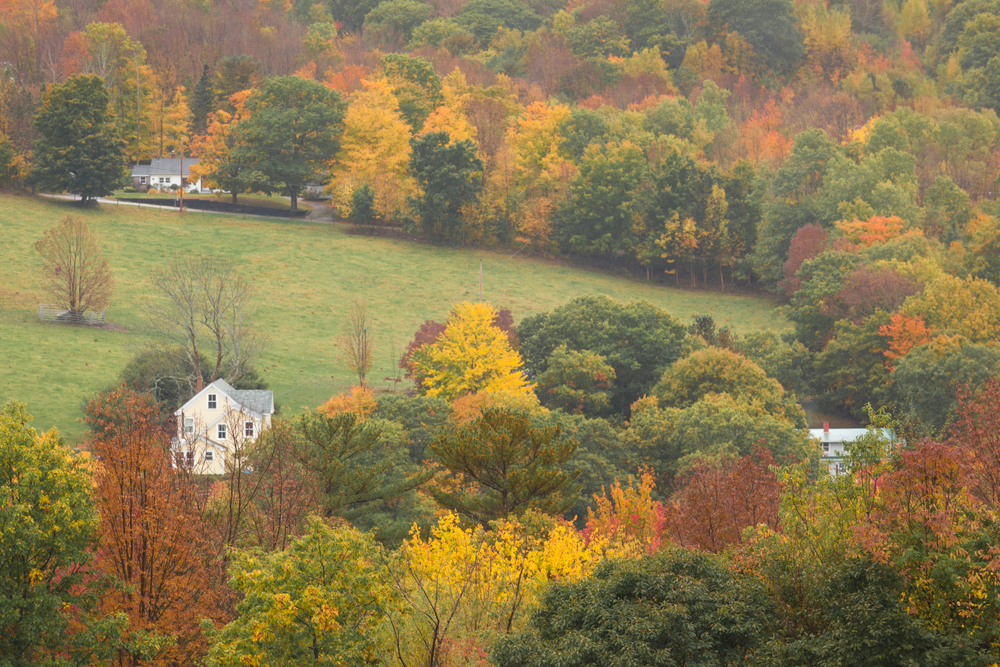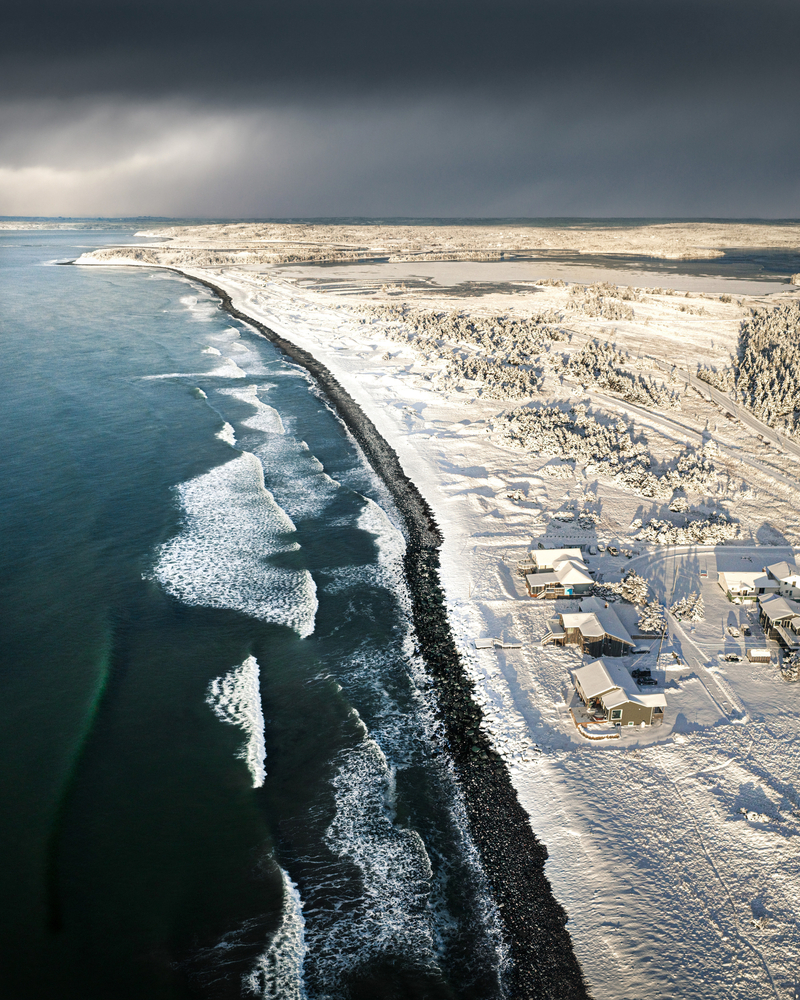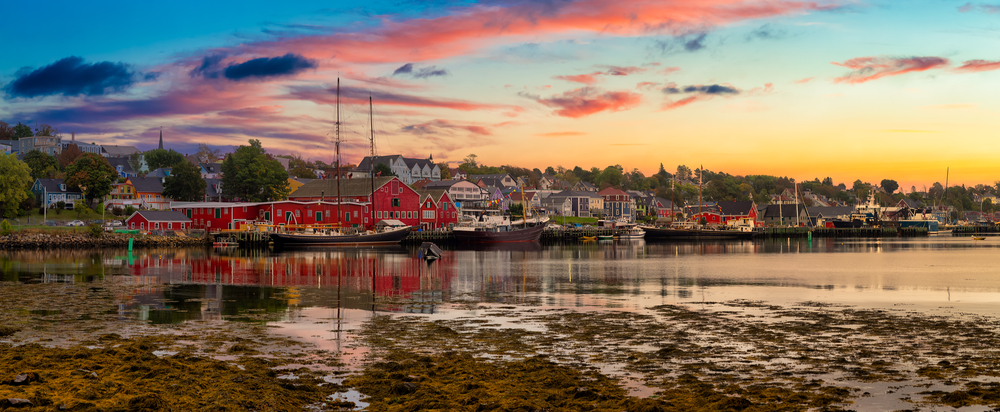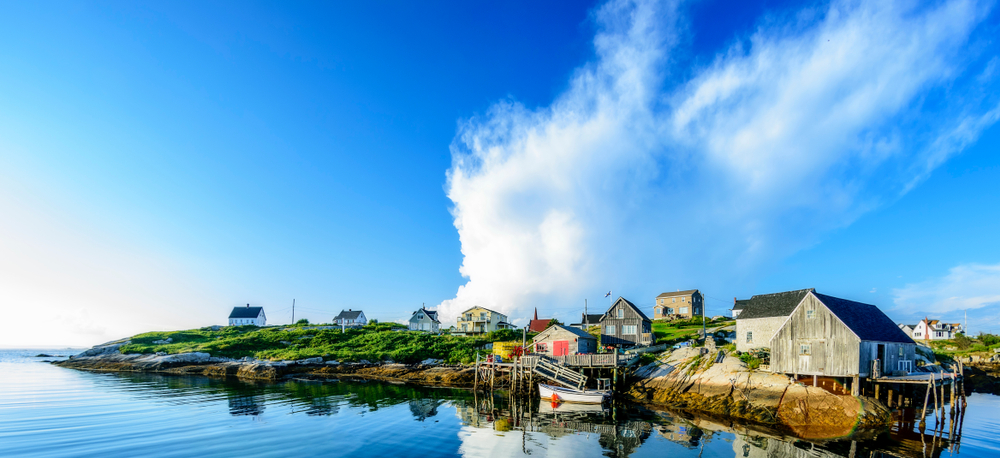California has long been the stuff of dreams—golden beaches stretching endlessly along the Pacific, multicultural scenes in cities like Los Angeles and San Francisco, and tech hubs that have revolutionized how the world connects and communicates. For decades, people flocked to the Golden State with stars in their eyes and ambition in their hearts, drawn by the promise of opportunity and the allure of year-round sunshine.
Yet today, a different story is unfolding. Instead of arriving with packed cars and big dreams, an unprecedented number of Californians are heading in the opposite direction—packing up their lives and leaving the state they once called paradise. What’s more surprising is where some of them are going. While many head to familiar domestic destinations like Texas or the Carolinas, a growing number are casting their gaze much further north, beyond the U.S. border entirely.
Enter Nova Scotia, Canada’s “Ocean Playground”—a destination that might seem worlds away from California’s sun-soaked lifestyle, yet offers something many Golden State emigrants desperately seek: affordability, natural beauty, and a pace of life that prioritizes tranquility over the relentless hustle.
From charming coastal villages to sprawling rural properties, Nova Scotia represents a completely different way of living—one that’s increasingly appealing to those ready to trade traffic jams for river views and million-dollar starter homes for acres of pristine wilderness.
California’s Ongoing Exodus

The numbers tell a stark story that contradicts California’s reputation as the ultimate destination. Between 2023 and 2024, more than 200,000 people bid farewell to the Golden State, continuing a trend that has accelerated dramatically in recent years. This isn’t just a statistical blip—it represents real families, professionals, and retirees making the difficult decision to leave behind everything familiar in search of something better.
The California Exodus by the Numbers
California now holds the dubious distinction of having the highest outbound move rate in the nation at 61%, meaning that for every 100 people moving into the state, 61 are packing up and leaving. This dramatic shift marks a complete reversal from the California of previous decades, when the state was a net gainer of residents year after year.
The departure isn’t evenly distributed across the state. Major metropolitan areas—once the crown jewels of California living—are experiencing some of the most significant population losses. Los Angeles, with its notorious traffic and sky-high housing costs, has seen a steady stream of residents relocating to more affordable regions. San Francisco, despite its reputation as a tech paradise, is losing both young professionals and established families who find themselves priced out of the very communities they helped build.
Even traditionally desirable areas like San Diego and Santa Barbara are witnessing departures as residents realize that the California dream has become financially unattainable for many middle-class families. The irony is palpable: the very success that made these cities attractive has also made them unlivable for the average American family. Remote work opportunities, accelerated by the pandemic, have given many Californians the freedom to prioritize lifestyle and affordability over proximity to traditional job centers, fundamentally changing the calculus of where to call home.
Where Are Californians Going—and Why?

Many Californians are choosing Texas cities like Dallas to relocate.
Texas has emerged as the top destination for California expatriates, attracting residents with its combination of no state income tax, lower housing costs, and business-friendly environment. The Lone Star State’s major cities offer many of the amenities Californians are accustomed to—thriving food scenes, cultural attractions, and job opportunities—without the crushing financial burden. Similarly, the Carolinas have become increasingly popular, with cities like Charlotte, Raleigh, and Charleston offering a compelling mix of economic opportunity and quality of life.

Nashville, Tennessee attracts many Californians.
Tennessee and Georgia round out the top domestic destinations, each offering their own unique appeal. Tennessee’s lack of state income tax combined with cities like Nashville’s vibrant music scene and Austin-like energy has attracted many former Californians. Georgia, with Atlanta’s status as a major business hub and the state’s diverse geography ranging from mountains to coast, provides variety that many Californians find familiar yet refreshingly affordable.
Interestingly, Florida—long considered the go-to destination for those fleeing high-tax states—is losing ground to the Carolinas in the battle for California transplants. While Florida offers no state income tax and year-round warmth, many former Californians find the humidity, hurricane risk, and increasingly crowded conditions less appealing than the Carolinas’ more temperate climate and growing but manageable cities.
But what’s driving this massive migration?

The affordability crisis sits at the heart of the exodus. With California’s median home price hovering around $797,000, homeownership has become accessible to only about 25% of households—a stark contrast to the American dream of widespread homeownership. High tax burdens compound the problem, with California’s top earners facing some of the nation’s highest state income tax rates.
Beyond finances, lifestyle considerations play a crucial role: wildfire risks that turn dream homes into evacuation zones, traffic that can turn a 20-mile commute into a two-hour ordeal, and the general stress of urban crowding that leaves many yearning for space, quiet, and a connection to nature.
Why Look Beyond the U.S.?

As remote work has normalized the idea of living anywhere with a reliable internet connection, some Americans are expanding their search beyond domestic borders entirely. The global mindset shift represents a fundamental change in how people think about career, lifestyle, and geography. No longer tethered to specific locations by daily commutes, many professionals are discovering they can maintain their California salaries while living in places that offer dramatically different—and often superior—quality of life.
Canada, in particular, holds special appeal for Americans seeking international relocation without completely abandoning familiar cultural touchstones. The country offers the excitement of living abroad while maintaining many comforts of home: English as the primary language, similar legal and political systems, and cultural values that align closely with American sensibilities. For Californians accustomed to progressive politics and environmental consciousness, Canada often feels like a natural ideological fit.
The practical advantages are equally compelling. Canada’s healthcare system, while different from the American model, often provides peace of mind for retirees and families concerned about medical costs. The country’s reputation for safety, political stability, and natural beauty creates an attractive package for those seeking a fresh start. Immigration pathways, while requiring paperwork and patience, are generally straightforward for Americans with professional skills or retirement income.
Perhaps most importantly, the psychological appeal of a true fresh start—not just moving to another American state with similar challenges, but embracing a genuinely different way of life—resonates with many Californians who feel that incremental change isn’t enough to address their fundamental concerns about lifestyle, cost, and community.
Nova Scotia: Canada’s Ocean Playground

Cape D’or, Nova Scotia
Nova Scotia embodies everything that draws Americans northward, wrapped in a package of stunning natural beauty that rivals California’s most scenic regions. The province’s coastline stretches for thousands of miles, offering everything from rugged Atlantic shores to peaceful river valleys. Unlike California’s often-crowded beaches and hiking trails, Nova Scotia provides space to breathe, explore, and connect with nature without fighting for parking spots or perfect photo opportunities.
The affordability factor cannot be overstated. While a modest home in many California markets might cost $800,000 to $1.2 million, that same budget in Nova Scotia could secure a waterfront property with acreage, privacy, and amenities that would cost millions in the Golden State. The purchasing power difference is so dramatic that many Californians find themselves able to buy their dream property outright, eliminating mortgage payments and dramatically reducing their monthly expenses.

Bear River, Nova Scotia
Communities like Bear River exemplify Nova Scotia’s unique charm. This small village has cultivated a thriving arts scene that attracts creative professionals from around the world, while maintaining the friendly, neighborly atmosphere that many Californians remember from their childhoods but can no longer find in their home state. The local food movement is strong, with farmers’ markets, artisanal producers, and restaurants that emphasize fresh, local ingredients—appealing to Californians who value sustainable, conscious consumption.
The pace of life represents perhaps the most significant shift for California transplants. Instead of the relentless hustle that characterizes much of California living, Nova Scotia encourages a more thoughtful approach to daily life. Mornings might begin with coffee overlooking a river valley rather than checking traffic apps and calculating the least congested route to work.
Evenings, meanwhile, provide opportunities for stargazing in truly dark skies, a luxury that light pollution has eliminated from much of California. Weekends become genuine breaks for exploration, whether hiking coastal trails, kayaking pristine rivers, or simply enjoying the changing seasons in a way that California’s eternal sunshine never allows.
A Glimpse Into the Dream: A Homestead in Bear River

To understand the appeal of Nova Scotia living, consider a remarkable property that embodies everything drawing Californians northward that represents not just a home, but a complete lifestyle transformation. This isn’t a sales pitch—it’s a window into the kind of life that becomes possible when you step outside conventional thinking about where and how to live.
Imagine Your Days Differently

Picture mornings that begin not with traffic reports and earthquake alerts, but with the sound of water flowing over rocks as a seasonal waterfall awakens with the sunrise. Your coffee tastes better when you’re sipping it while watching wildlife move through your own private forest, and your evening walks don’t require driving anywhere—they begin at your front door and can last as long as your spirit desires.



This particular property exemplifies the flexibility that attracts remote workers and retirees alike. The five-bedroom, three-bathroom home provides ample space for family, guests, or a home-based business. Many new Nova Scotia residents discover opportunities they never considered in California: running a bed-and-breakfast that showcases the province’s natural beauty, developing a small farm operation that supplies local restaurants, or creating an artist’s retreat that combines their passion with income generation.

The 900+ feet of riverfront access opens possibilities that simply don’t exist for most Californians. Swimming, fishing, kayaking, and simply sitting by moving water become daily options rather than weekend expeditions requiring hours of travel and crowded facilities. The combination of fertile soil, outbuildings, and fenced pastures provides infrastructure for sustainable living that many Californians dream about but never achieve due to land costs and zoning restrictions.

Perhaps most importantly, the property offers something invaluable: true privacy. At 21 acres, you’re far enough from neighbors to enjoy solitude and quiet, yet close enough to Bear River village to walk for coffee, local events, or community activities. This balance—privacy when you want it, community when you need it—represents a luxury that millions of Californians have lost in their increasingly dense, expensive neighborhoods.
Considerations Before Making the Move

Winter at Lawrencetown Beach in Halifax, Nova Scotia
Moving to Canada isn’t as simple as relocating to Texas or Tennessee, and prospective transplants need to understand the legal requirements for permanent residency. Americans must apply for legal permanent resident status. The process, while manageable, requires documentation, patience, and often professional assistance to navigate successfully. Various pathways exist, from skilled worker programs to investor visas, and many retirees find options through Canada’s programs designed to attract financially stable newcomers.
The weather represents perhaps the most significant lifestyle adjustment for Californians accustomed to year-round mild temperatures. Nova Scotia experiences true seasons, including winters that bring snow, ice, and temperatures that dip well below California’s comfort zone. However, many transplants discover unexpected joy in seasonal changes: the brilliant colors of autumn foliage, the cozy intimacy of winter evenings by the fire, and the explosive beauty of spring after months of dormancy.

Lunenburg, Nova Scotia
Cultural shifts, while subtle, do exist. Canada’s approach to healthcare, taxation, and social services differs from American systems in ways that can be both advantageous and challenging. The pace of business and bureaucracy often moves more slowly than Americans expect, but many find this deliberate approach refreshing after California’s frenetic energy. Banking, legal systems, and professional licensing may require adjustments, though most Californians find these changes manageable with proper preparation.
The social adjustment period varies by individual, but most Americans find Nova Scotians welcoming and helpful to newcomers. The province has experience integrating transplants from other regions and countries, creating communities where former Californians can find both the fresh start they’re seeking and connections with others who understand the adjustment process.
A New Chapter Awaits

Peggys Cove, Nova Scotia
The California exodus represents more than dissatisfaction with high costs and crowded conditions—it reflects a fundamental reevaluation of what makes life worth living. As remote work continues to untether careers from specific locations, and as housing costs make traditional American dream scenarios increasingly unattainable, more Californians are discovering that happiness might require looking beyond familiar boundaries.
Nova Scotia offers something rare in today’s world: the opportunity to step back from the race and rediscover what truly matters. Whether it’s the financial freedom that comes from affordable living, the peace that flows from connection with nature, or the community spirit that thrives in smaller, more intentional places, Canada’s Ocean Playground provides a compelling alternative to the Golden State’s increasingly tarnished promise.
For those ready to imagine a life where the sound of a river replaces the constant hum of traffic, where neighbors know your name and wildlife shares your backyard, places like the Bear River homestead represent more than real estate—they represent possibility. The question isn’t whether such places exist, but whether you’re ready to embrace the adventure of calling one home.

